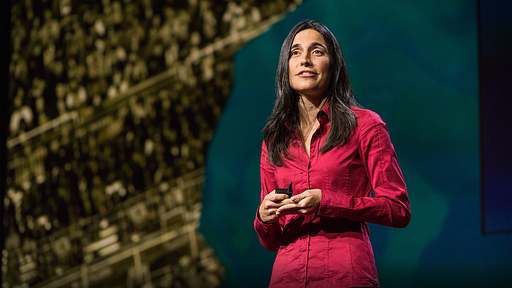Twelve years ago, I picked up a camera for the first time to film the olive harvest in a Palestinian village in the West Bank.
十二年前,我第一次拿起相機,去拍攝一個位于約旦河西岸的巴勒斯坦村莊的橄欖收割活動
I thought I was there to make a single documentary and would then move on to some other part of the world.
我本打算去那里拍一個紀錄片,然后就會離開去其他地方
But something kept bringing me back.
但有些東西讓我一直割舍不開
Now, usually, when international audiences hear about that part of the world,
現如今,當國際上的聽眾了解世界的那個部分后
they often just want that conflict to go away.
他們只希望沖突早點結束
The Israeli-Palestinian conflict is bad, and we wish it could just disappear.
巴以沖突嚴重,我們只想它能消失
We feel much the same way about other conflicts around the world.
我們對世界上的其他沖突也懷有同樣的感受

But every time we turn our attention to the news, it seems like one more country has gone up in flames.
但好像每次我們注意到新聞,都會有另一個國家陷入戰火
So I've been wondering whether we should not start looking at conflict in a different way
所以我一直在想,我們是否應該從不同的角度看待沖突
whether instead of simply wishing to end conflict, we focus instead on how to wage conflict.
是否應該聚焦于沖突是如何發動的,而不是僅僅希望能結束沖突
This has been a big question for me, one I've pursued together with my team at the nonprofit Just Vision.
這對我而言一直是個大問題,一個我和我在非盈利組織Just Vision的團隊一直在追尋的問題
After witnessing several different kinds of struggles in the Middle East,
在目睹了中東地區幾種不同的嘗試之后
I started noticing some patterns on the more successful ones.
我開始注意到那些更為成功的嘗試所具有的方式
I wondered whether these variables held across cases, and if they did,
我想知道這些變量是否存在于其他情況,如果是的話
what lessons we could glean for waging constructive conflict, in Palestine, Israel and elsewhere.
我們能從中學到哪些以在巴基斯坦、以色列等開展建設性沖突
There is some science about this.
這背后有其科學道理











